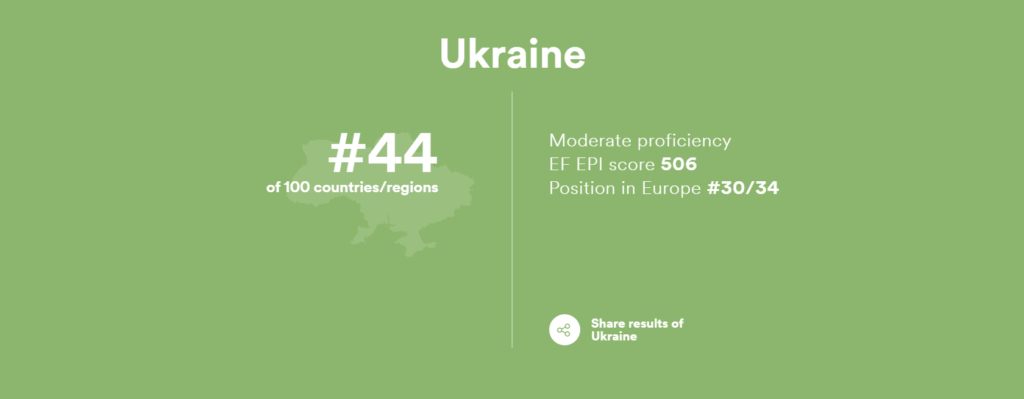There are two possible paths to becoming a software engineer.
First, you can go to school and get a degree in software engineering. And second, you can reach the same level through hands-on experience. In either case, a software engineer’s path is endless because technologies evolve, new ones appear, and there’s always something to learn.
Let’s look at what any recruiting process starts with — evaluating an engineer’s hard and soft skills to make sure they match up with the job description and seeing how they’ll fit in with the team and company.
Ukrainian Software Engineer Hard skills
Hard skills 100% affect an engineer’s salary. Depending on the project and scope, an engineer needs to have a bag of tricks available. Ukrainian engineers are well-educated thanks to the strong math and science program inherited from the Soviet Union.
Tech-wise, all engineers have to stay up-to-date and learn new skills. Language-wise, English used to be an issue, but now most companies have an English-required policy, so most engineers have a decent understanding of English.
Let’s look at education, tech stack, and knowledge of English in more detail.
Education
The DOU.ua (Ukrainian programming community) survey of 12,000+ Ukrainian IT workers found that 75.5% have a degree.
However, many school programs are outdated. Local IT companies pick up where university degrees leave off by offering free and paid classes/courses for anyone that wants to learn. Recruitment tools like this, plus participation in Career Days, make outsourcing companies a popular choice for young professionals.
Students in the US and Western Europe normally get to intern at large companies. Some get recruited to those large companies, where the enterprise/corporate/bureaucratic system is very different from the dynamic, agile startup culture most Ukrainian engineers are used to.
Tech stack
COVID has made an employee’s value more transparent. You can no longer judge an employee’s value by their office presence or how long they work.
Software engineering has always been about finding the best way to develop software predictably. It’s a common misconception that tools, languages, etc. define a software engineer. In reality, a software engineer should master — first and foremost — software engineering!
Engineers learn about logic, memory management, data structures, algorithms, and other concepts. Programming, clean code practices, syntax, and other language-specific knowledge come secondary to those core concepts.
Besides an intimate understanding of how software works, Ukrainian engineers are expert programmers.
Programming languages, Frameworks & Technologies
According to another DOU survey, the following languages were cited as the “main programming language” of respondents.
| JavaScript | 23.8% |
| Java | 15.6% |
| C#/.NET | 15.0% |
| PHP | 11.3% |
| TypeScript | 7.8% |
| Python | 6.0% |
| Swift | 3.8% |
| Kotlin | 3.5% |
| C++ | 3.5% |
| Ruby | 2.0% |
| Other | 7.7% |
The most popular frameworks, libraries, and platforms among Ukrainian software engineers are React.js, Node.js, Angular.js, Spring, .NET Core, jQuery, .NET, ASP.NET, Vue.js, Hibernate, Laravel.
Not only do they have a firm grasp of the latest tech, but they can also put it into practice.
Real-world experience
Ukrainian engineers are exposed to various industries. Some are lucky and end up working for a single industry, and the ones that are in “one-stop-shop” outsourcing companies may end up working in several.
The DOU survey found that most Ukrainian engineers work in these industries (in order):
- E-commerce
- Fintech
- Mobile
- Media
- Medtech
- High load systems
- Telecom
And because of this exposure and experience, they know how to get the most out of a given technology —they’re not afraid to try something new. Also, because the job market is strong, a better (or more updated) tech stack makes you more competitive.
US Tech Companies That Have R&D Offices in Ukraine (Google, Snap, Lyft and more!)
Knowledge of English
Ukrainians have a weird relationship with English. Most kids learn English in all 11 grades, plus English classes in college. But then you look at the statistics and find that it’s ranked #30 out of 34 countries in Europe in English proficiency and #44 out of 100 countries in the world (according to ef.edu).
How is this possible? Well, if the STEM program is good, the language program seems to be seriously lacking.

Or is it? This is how DOU survey respondents (IT experts) evaluated their knowledge of English:
- 12.1% Advanced
- 37.6% Upper-Intermediate
- 35.1% Intermediate
- 12.8% Pre-Intermediate
- 2.4% Elementary
So, if proficiency among the general population is low, how is that nearly 50% of respondents identified themselves as Upper-Intermediate or higher? First, this discrepancy is likely due to incentives in outsourcing companies — higher pay for better English. And second, engineers working with cross-border teams or foreign clients have to be able to communicate.
How we rate Ukrainian engineers’ Hard Skills: 4/5
Software Engineer Soft skills
To understand why soft skills are important for software engineers, let’s think of software like a ship. So picture this, we’re full steam ahead, and suddenly, someone yells iceberg. What happens next? If everyone is running around screaming their heads off, you’re going to sink. Soft skills give you the tools you need like teamwork, responsibility, and communication to enable you to get past any challenge (and stay afloat).
Soft skills are more difficult to rate than hard skills because every company and team has its own culture. As mentioned above, most Ukrainian engineers start in outsourcing — an industry that forces you to build a thick skin. By and large, it’s a trial by fire, but engineers find a way through. Tech skill isn’t enough to get you all the way in outsourcing — you need soft skills to make it happen.
All things considered, you don’t need perfect grammar or the latest slang to communicate well — your goal is to get information across as accurately as possible. Undeniably, Ukrainians understand the work culture and emotional intelligence as well as their Western colleagues. This is clear if you look at the level of software produced in Ukraine: GitLab, Grammarly, and YayPay, to name a few.
How we rate Ukrainian engineers’ Soft Skills: 4/5
Closing Thoughts
2020 has shown us that you can find a great software engineer anywhere in the world.
If you try to find someone locally, it can take up tons of time and effort. And if you hire a team through an outsourcing agency, things can get messy and unpredictable. That’s why hiring a remote engineer may be exactly what your company needs.
Ukraine is a great place to find talent. If there’s anything we know, it’s that Ukrainian software engineers are on par with any metric you use.
Obviously, you can’t pick from a hat, so let us help you find the talent you require. Contact us today! We’ll go through your requirements to find the best engineer for the task.



